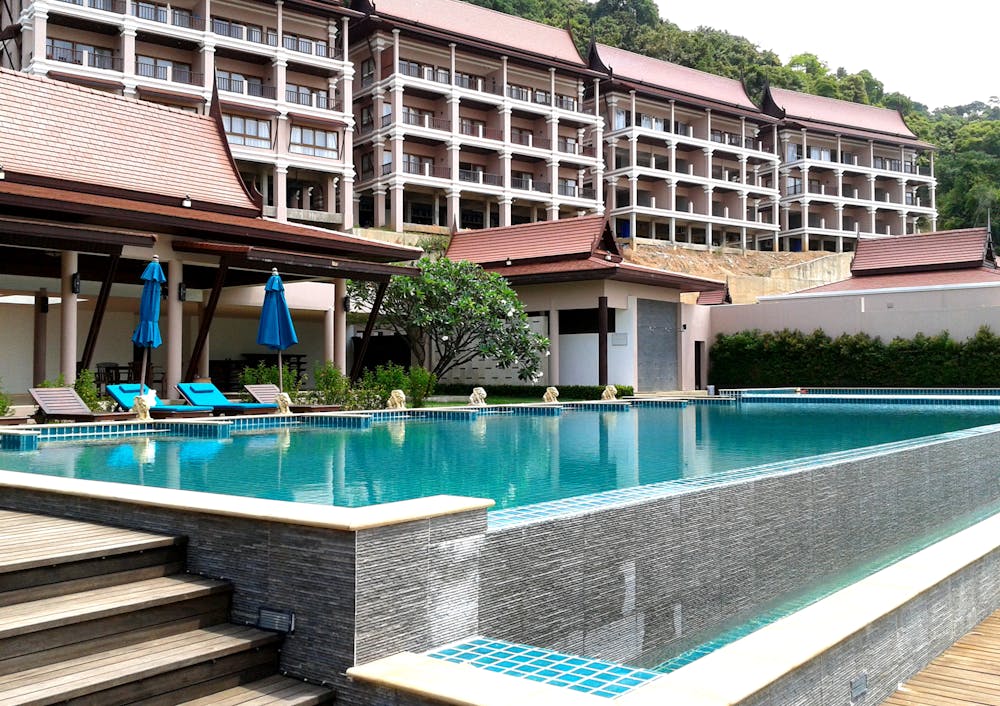If you operate a business or organization that includes a swimming pool, you don’t need us to tell you how important commercial pool maintenance is. You’ve always been diligent: you make sure to repair problems the moment they arise, and you and your staff work hard to keep everything clean and in good condition so that your customers are always happy they came to pay you a visit.
If you are already doing all of what we mentioned above, then the next step is to invest in proactive pool maintenance. This means anticipating problems before they arise and taking steps to prevent major mechanical issues from occurring. This can save you a great deal of money on repair costs and take your water quality to the next level. Of course, improved water quality will directly translate to more satisfied customers.
In the following article, we’ll discuss some of the proactive and preventative maintenance steps you can take to ensure that your pool remains clean, clear, and inviting to customers without interruption.
1. Perform Regular Chemical Testing
The pH balance in a pool is, of course, a major contributor to the water clarity. If the pH is either too high or too low, it can ultimately encourage the growth of algae, which will cause the pool to begin to turn an unsightly green color. Not only is this unpleasant to look at, but it can also promote the growth of potentially harmful bacteria, creating a potentially unsafe environment for swimmers.
On the other hand, a pool that has too much chlorine or other chemicals isn’t good either. Although it may appear pristine, an excessive amount of these otherwise crucial components can be unpleasant for swimmers, causing eye irritation and exacerbating asthma and other respiratory conditions.
Performing regular chemical testing in a pool, before the water begins to change color or other signs of trouble arise, can help to prevent problems that would otherwise escalate and necessitate expensive cleaning. These tests should be performed at least twice a month using chemical testing kits, which can be ordered from your local pool supply store or from your pool service providers.
2. Invest in More Efficient Filtration Systems
A pool is only as good as its filtration system. All pools collect leaves, sticks, dirt, and other debris over time, and a pool with efficient filters will be able to remove these quickly and effectively. The benefit of this is greater than simply keeping the pool looking pristine and clear. It also makes the pool safer and healthier for guests, as too much organic material left floating in the pool can create a breeding ground for both algae and bacteria.
Many commercial pools still make use of filtration technology installed years or even decades earlier. Choosing to upgrade to a more modern and more powerful model can lead to a cleaner pool and reduced maintenance costs.
There are several different types of filters you can choose from, each offering certain benefits over the others. For a commercial pool, which is likely to see a great deal more use than most residential pools, it’s worth investing in a top-quality filtration system. We recommend a diatomaceous earth filter, which, while more expensive than other options, can’t be beat in terms of its purification abilities.
It’s also worth noting that pairing a high-efficiency pump with your pool filter can also help you save on your monthly energy bills. Because large commercial pools require powerful pumps and filtration systems, they tend to use a great deal of energy. As a result, installing equipment that uses power more efficiently can save your entire organization money.
3. Create a Proactive Cleaning Schedule
One of the other critical elements of proactive pool maintenance is keeping everything clean before it becomes overly saturated with dirt and grime. The best way to do this is to create and maintain a proactive cleaning schedule. By performing certain cleaning tasks regularly, you’ll help prevent small problems from escalating into larger ones. You’ll also ensure your pool season can continue without interruption during the busiest times of the year.
A proactive commercial pool maintenance schedule should include a checklist for staff to work their way through. This checklist should include tasks to be performed daily, weekly, bimonthly, monthly, semi-annually, and yearly. Daily requirements might include activities such as hosing down pool equipment, skimming leaves and other debris from the water, and placing the pool cover for the night. Weekly requirements should include cleaning filters, scrubbing down the sides of the pool, and vacuuming the bottom. The aforementioned chemical testing can be added to the bimonthly section of the checklist. Other requirements will depend on your specific business and the specific needs of your pool.
4. Work Closely With Trusted Professionals
While most proactive maintenance can be handled directly by your staff, it can be to your benefit to leave larger or more skilled tasks in the hands of the professionals. A commercial pool makes use of large-scale, sophisticated equipment that will require occasional tune-ups. Because your business depends on customer satisfaction, any failure of this equipment can lead to a loss of income. A good relationship with a commercial pool company, such as Strong Refuge Pool in the Portland area, can go a long way toward keeping your pool well-maintained and well-functioning.
It’s important to find a pool service professional that specializes in commercial pool maintenance because the needs of a business or public organization are different than those of a private residence, even if the pools themselves are similar. Look for a pool maintenance business that is experienced in doing commercial work. Ideally, work with a team that is able to perform both routine maintenance and specialized repairs and installation in order to best serve the needs of your business or organization and keep your customers coming back for more.

